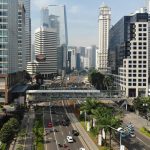Executive Summary
- Penang’s thriving literary industry slumped following Malaysia’s independence, when publishing houses relocated to Kuala Lumpur due to the political, commercial and cultural pull
- However, Kuala Lumpur’s potential as Malaysia’s literary translation centre has not been fully fulfilled, as can be seen in the limited number of translated works and the lack of full-time literary translators
- As independent publishers begin to revive Penang as a literary hub, chances are good for stakeholders and the Penang state government to work together to take effective measures to reclaim Penang’s role as a prominent hub for literary translation activities
Introduction
Penang flourished as a literary translation hub in the 1930s when Malay journalism moved its base from Singapore, giving impetus to the diversification and increment of Malay daily and weekly newspapers, religious periodicals, literary magazines, and entertainment journals.[1], [2]
At that time, Penang’s publishing industry was spearheaded by the Peranakan Chinese community whose active involvement also facilitated literary translation activities. Chan Kim Boon, a prolific Baba author, was notable for translating numerous Chinese literary classics, including Romance of the Three Kingdoms and Water Margin, into Romanised Malay.[3] While Muslim scholar Syed Sheikh Al-Hadi was central in introducing the Malay reading public to foreign detective fiction with his translation of Cherita Rokambul dalam Jel dan di-Paris. The subgenre became popular literature during 1930s British Malaya when more English and French detective series were brought in and translated into the Jawi script.
But despite Penang’s relevance as an important pre-war literary translation hub, its publishing industry and literary production suffered when publishing companies began relocating to KL following Malaysia’s independence — a result of the political, commercial and cultural pull.
This prompts the question: Are conditions right today for Penang to become a prominent literary translation hub again?
KL as the Centre for Translation Activities
The shift to KL led to the establishment of language bodies and publication companies with common goals of promoting the Malay language and encouraging more book publications in myriad languages.
The government-linked agency Dewan Bahasa dan Pustaka (DBP) was central in the translation and publication of original Malay language works. Between 1956 and 1995, the Translation Section of DBP recorded a total of 374 translated works, of which 191 were books from the fields of pure science, applied science and social science. A survey conducted by Haslina Haron, an academician from the School of Humanities, Universiti Sains Malaysia (USM), also found that the DBP was responsible for translating and publishing 72 foreign language novels in the Malay language, including Mark Twain’s The Prince and the Pauper. [4]
In 1995 the Institut Terjemahan & Buku Malaysia (ITBM) took over translation duties from the DBP and as of 2015, it recorded a total of 1,488 translated works from Malay to English, French, German and Spanish. [5] Between 1995 and 2002, 23 Malay language works were also translated into Arabic. These include 21 books for children and young adults, a comic book Budak Kampung by Datuk Lat, and the novel Ustaz by the National Laureate S. Othman Kelantan. [6]
Likewise, in recent years, independent publishing houses like Fixi, under its imprint Fixi-Verso, have also taken to funding literary translations of bestsellers such as Joyland by Stephen King and The Ocean at the End of the Lane by Neil Gaiman in an effort to promote translation works of budding local translators. [7]
But the fact remains: KL’s potential as a centre for literary translation activities has not been fully tapped, evidenced by the limited number of translated materials and a lack of full-time literary translators.
Penang as a Literary Translation Hub Today
Penang is well-positioned to take advantage of the fact that the literary scene has become more fluid and dynamic. Local publishers such as Areca Books, Clarity, Entrepot and the state agency George Town World Heritage Incorporated (GTWHI) have established their presence on the island while major bookstore chains like Borders Malaysia, MPH Bookstores, Popular, and Times Bookstores and independent bookshops like Gerakbudaya have also enriched Penang’s literary scene with their myriad book titles reflective of the four main languages spoken in Malaysia: English, Malay, Mandarin and Tamil. Gerakbudaya also assists in translating and publishing books by promising young writers.
The annual George Town Literary Festival (GTLF), a state government-funded literary event to promote world literature and to encourage reading and intellectual discourse, also gives emphasis to the importance of literary translation. This November, a Translators’ Roundtable will be organised, featuring writers and translators including Muhammad Haji Salleh (Malaysia), Lee Yew Leong (Singapore/Taiwan), and Jérôme Bouchaud (France/Malaysia), with the aim of giving more visibility to the role of translators in local literature, and to also highlight the many issues that translators face today.
Penang would do well to take cues from Indonesia; the latter has effectively positioned literary translation as one its main channels for promoting Indonesia to the world (the country is the biggest rights buyer in Southeast Asia with more than 40% of its books published in translation). In 2015 the Indonesian government allocated USD1mil for such translation projects, and the effort was seen through its participation in various international book fairs, most especially the Frankfurt Book Fair in 2015. With the slogan ‘17,000 Islands of Imagination’, Indonesia was the official guest of honour with a total of 530 book titles displayed, of which 150 were translated into either English or German.
The Indonesian literary industry was able to profit from the attention it received due to the promotion of its authors and their literary works on the global stage, and the presence of publishers at the Frankfurt Book Fair. The general cultural programme that accompanied the guest of honour appearance helped create sustainable international cultural relations by encouraging cultural exchanges and dialogue among book fair participants; not to mention the country’s tourism industry experiencing considerable boosting as well.
Here at home, Penang’s USM offers comprehensive undergraduate and graduate programmes in translation studies. The courses aim to furnish aspiring translators and interpreters with quality education in language studies and equip them with the necessary skills and knowledge for academic success, career development, creativity, and effective communication.
So, what can Penang do to reclaim its role as a prominent literary translation hub?
As the number of translation works is still limited, it is advisable that the scope of translation be broadened to not just include translation works from English to Malay or the reverse, but also from Mandarin to Malay, Tamil to Mandarin and vice versa, as well as texts from foreign languages into local ones. For this, Penang may look to Selangor for direction. In 2015 the Selangor state government announced an allocation of RM2mil to boost its literary industry chiefly by introducing audio book projects and translation programmes which include translating English-translated French and Arabic books to Malay such as John Rawls’ Justice as Fairness (Keadilan Sebagai Kesaksamaan), René Descartes’ Discourse on the Method (Wacana Tentang Kaedah), Voltaire’s Treatise on Tolerance (Satu Karangan Tentang Toleransi), and Imam Sa’Duddin Al-Taftazani’s Huraian Al-Aqaid Al-Nasafiyyah.
The provision of reading materials in a variety of languages can equally facilitate in the broadening of perspectives and deepen the understanding of different values and diverse cultures. Thus, visible efforts need to be undertaken by stakeholders to recruit well-established as well as new translators to assume the role of cultural transmitters.
But to do that, funding is first required. A suitable allocation of financial backing can assist in sparking renewed interest in literary translation, and attract new translators to the trade. The GTLF is a case in point. It should be stressed that monetary support should not be reserved for large-scale literary events, but be channelled to smaller ones as well, to level the playing field.
Additionally, translation grants are something that can be introduced, as a private or public initiative. The Kota Buku International Grant from the Perbadanan Kota Buku Malaysia, for example, provides assistance to Malaysian and foreign publishers with the first translation of literary works by local authors for publication abroad. Then there is the example of the Goethe-Institut Malaysia, a non-profit German cultural association, which offers the ‘Translations of German Books into Other Language’ grant programme. The association supports non-German publishers in publishing German-language literature, with the aim of making accessible to non-German speaking readers current works of contemporary literature, literature for children and young people, important academic titles and non-fiction works.[8]
At the state level, the development of a policy on literary education with a focus on translation activities would be a big boost. Supporting the literary translation trade can be a vital component in celebrating and developing creativity in general, the bedrock on which Penang’s economic future depends.
Penang’s development as a regional literary translation hub would also help strengthen relations with the other NCER states, and within the Indonesia-Malaysia-Thailand Growth Triangle (IMT-GT).
Lastly, a translation centre can also be set up to provide a conducive and stimulating environment to promote discussions, training opportunities and workshops. Such a centre can take the form of a library that houses translation works by local and international writers and translators.
Conclusion
To be sure, Penang is not found wanting of budding literary translators. However, support is still very much lacking. Young talent needs to cultivate self-reliance to get ahead. Mastering the art of literary translation takes diligence, time and capital. More often than not, the lack of financial support discourages young writers and translators from pursuing a career in the local literary industry, and forces them to seek more income-steady job opportunities instead. That being said, there are still local talents that have managed to carve out a name for themselves abroad.
But this unfortunately reflects the fact that though Penang is well-promoted internationally by local literary works, its environment is still not very conducive for its writers and translators to promote themselves locally. Therefore, it would be a good investment in the future of Penang’s cultural prowess for stakeholders as well as the state government to work hand-in-hand today to determine effective measures that will give local talents a leg up, and help Penang reclaim its role as a prominent hub for literary translation activities.
Managing Editor: Ooi Kee Beng Editorial Team: Regina Hoo, Lim Su Lin, Nur Fitriah, Ong Wooi Leng
[1] Wan Suhana (2006). Saudara (1928-1941): Continuing and Change in the Malay Society. Intellectual Discourse, 14(2), 179-202.
[2] Lent, J. A. (1978). Malaysia’s National Language Mass Media: History and Present Status. South East Asian Studies, 15(4), 598-612.
[3] http://eresources.nlb.gov.sg/printheritage/image.aspx?id=bf488a98-0e83-41e7-bb0c-914bb5b14f96
[4] Haron, H., & Majid, M. A. (2015). The Translation of Foreign Novels Into Malay by Dewan Bahasa dan Pustaka. Malay Literature, 28(1), 126-156.
[5] Tan, T. (2015). Country Spotlight: Malaysia. Retrieved August 16, 2017, from Publishers Review https://www.publishersweekly.com/pw/by-topic/international/international-book-news/article/68105-country-spotlightmalaysia.html.
[6] Noorsyuhada Mohamed Salleh, & Ahmad, M. (2015). Literature Review on the Translation of Malay Novels into Arabic. Islamiyyat: The International Journal of Islamic Studies, 32(2), 1
[7] Lingard, L. T. (2014). Buku Fixi: On Translating Bestsellers for Malaysia. Retrieved August 16, 2017, from Publishing Perspective http://publishingperspectives.com/2014/02/buku-fixi-on-translating-bestsellers-for-malaysia/
[8] http://cms.goethe.de/kue/lit/prj/uef/enindex.htm
You might also like:
![A Critical Need for Effective State-Federal Relations in Malaysia]()
A Critical Need for Effective State-Federal Relations in Malaysia
![Lessons from Southeast Asia's Responses to Covid-19]()
Lessons from Southeast Asia's Responses to Covid-19
![Tighter Collaboration Needed in Penang’s Skills Development Infrastructure]()
Tighter Collaboration Needed in Penang’s Skills Development Infrastructure
![Economic Success Requires Foresighted Demographic Measures]()
Economic Success Requires Foresighted Demographic Measures
![Cut the Queue: A Basket of Solutions for Malaysian Hospitals]()
Cut the Queue: A Basket of Solutions for Malaysian Hospitals






